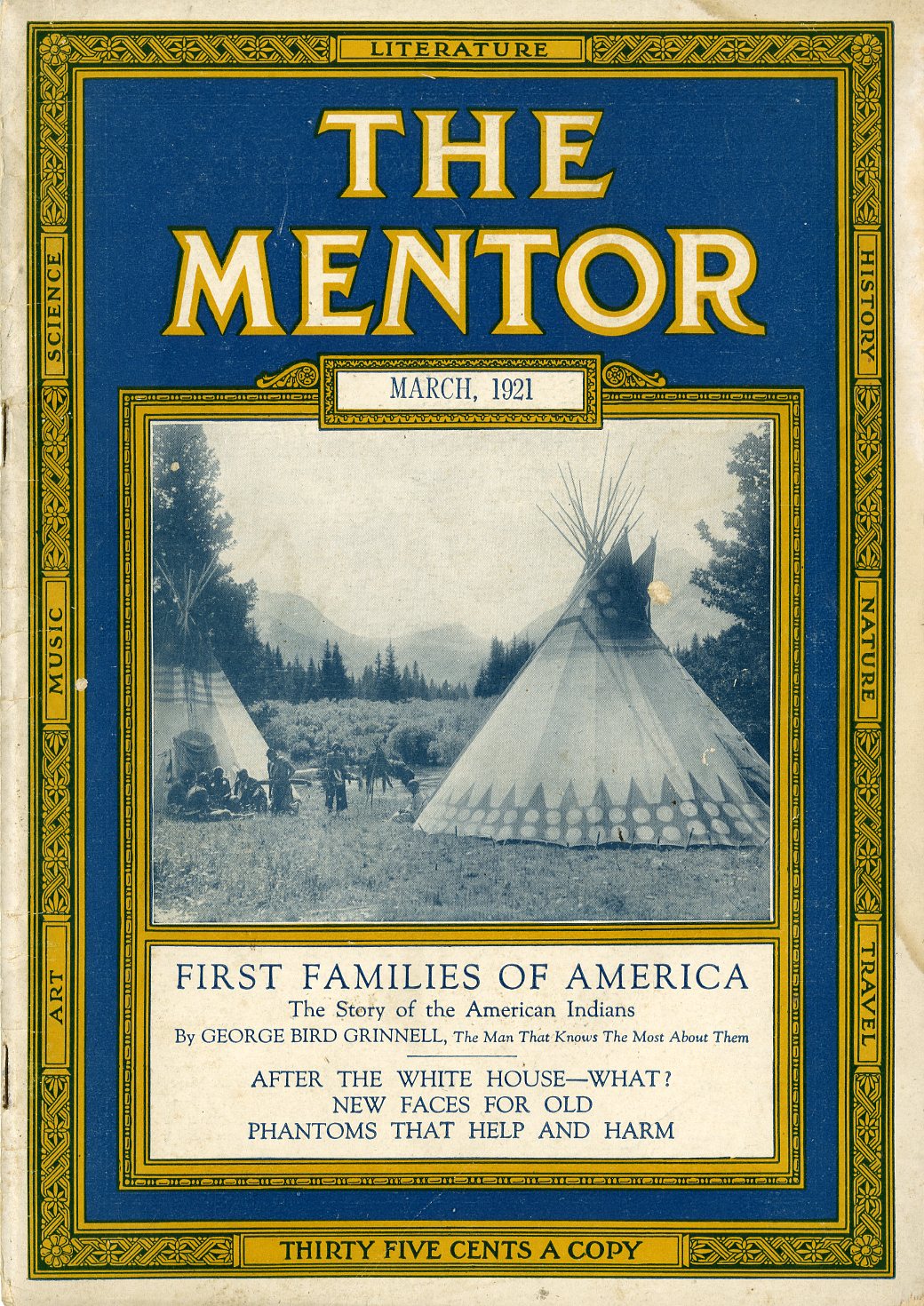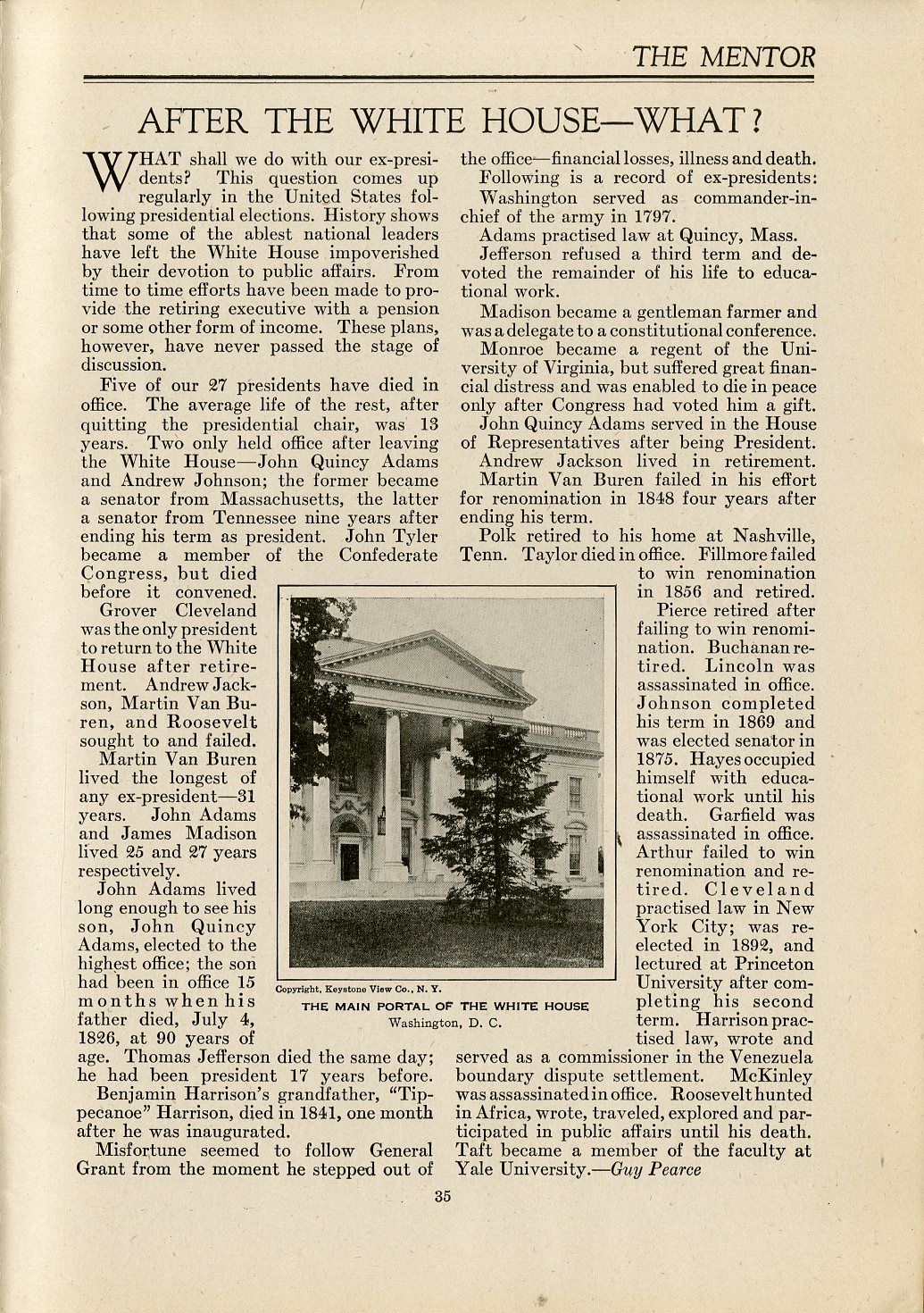Mr. Magazine™: Life after the White House – A revealing article from a century ago
Magazines then and magazine now: they still play an important role in informing, entertaining, and educating their audiences. From my vault, The Mentor magazine, March 1921, an article revealing what the presidents of the United States did after leaving office. The article covers presidents Washington to Taft. I wonder who will take the task to cover life after The White House since 1921 until today… Enjoy the article:

AFTER THE WHITE HOUSE — WHAT?
What shall we do with our ex-presidents? This question comes up regularly in the United States following presidential elections. History shows that some of the ablest national leaders have left the White House impoverished by their devotion to public affairs. From time to time efforts have been made to provide the retiring executive with a pension or some other form of income. These plans, however, have never passed the stage of discussion.
Five of our 27 presidents have died in office. The average life of the rest, after quitting the presidential chair, was 13 years. Two only held office after leaving the White House – John Quincy Adams and Andrew Johnson; the former became a senator from Massachusetts, the latter a senator from Tennessee nine years after ending his term as president. John Tyler became a member of the Confederate Congress, but died before it convened.
Grover Cleveland was the only president to return to the White House after retirement. Andrew Jackson, Martin Van Buren, and Roosevelt sought to and failed.
Martin Van Buren lived the longest of any ex-president – 31 years. John Adams and James Madison lived 25 and 27 years respectively.
John Adams lived long enough to see his son, John Quincy Adams, elected to the highest office; the son had been in office 15 months when his father died, July 4, 1826 at 90 years of age. Thomas Jefferson died the same day; he had been president 17 years before.
Benjamin Harrison’s grandfather, “Tippecanoe” Harrison, died in 1841, one month after he was inaugurated.
Misfortune seemed to follow General Grant from the moment he stepped out of office – financial losses, illness and death.
Following is a record of ex-presidents:
Washington served as commander-in-chief of the army in 1797.
Adams practiced law at Quincy, Mass.
Jefferson refused a third term and devoted the remainder of his life to educational work.
Madison became a gentleman farmer and was a delegate to a constitutional conference.
Monroe became a regent of the University of Virginia, but suffered great financial distress and was enabled to die in peace only after Congress had voted him a gift.
John Quincy Adams served in the House of Representatives after being President.
Andrew Jackson lived in retirement.
Martin Van Buren failed in his effort for re-nomination in 1848 four years after ending his term.
Polk retired to his home at Nashville, Tenn. Taylor died in office. Fillmore failed to win re-nomination in 1856 and retired. Pierce retired after failing to win re-nomination. Buchanan retired. Lincoln was assassinated in office. Johnson completed his term in 1869 and was elected senator in 1875. Hayes occupied himself with educational work until his death. Garfield was assassinated in office. Arthur failed to win re-nomination and retired. Cleveland practiced law in New York City; was reelected in 1892, and lectured at Princeton University after completing his second term. Harrison practiced law, wrote and served as a commissioner in the Venezuela boundary dispute settlement. McKinley was assassinated in office. Roosevelt hunted in Africa, wrote, traveled, explored and participated in public affairs until his death. Taft became a member of the faculty at Yale University.

This article was originally published in the Mr. MagazineTM blog, you can see it here.










